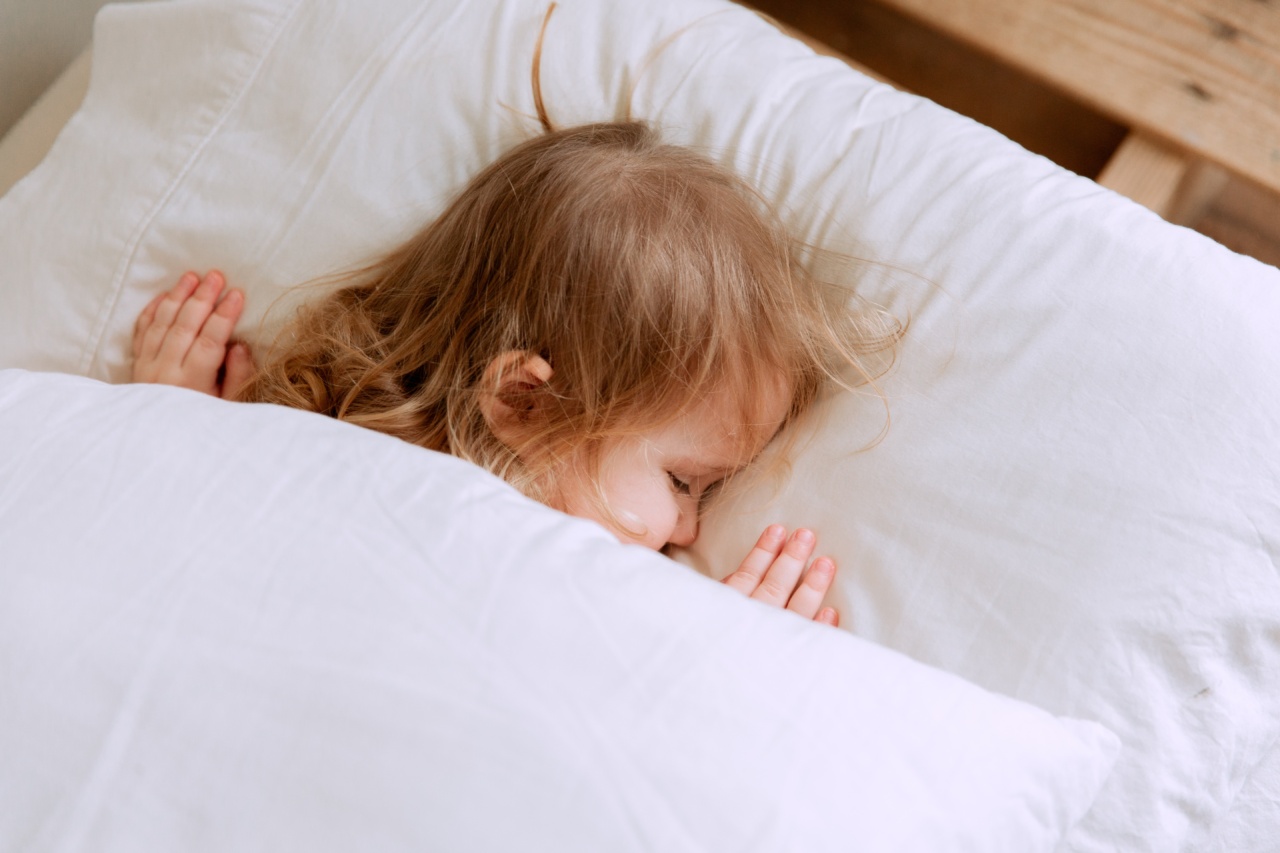As parents, we often prioritize our children’s education, extracurricular activities, and overall well-being. However, one crucial aspect that often gets overlooked is their sleep.
Many children today are not getting enough sleep, which can have significant consequences on their physical and mental health, as well as their overall development. In this article, we will explore the power of a good night’s sleep for children and why it matters.
The Importance of Sleep for Children
Sleep plays a vital role in a child’s growth and development. It is during sleep that their bodies repair and regenerate cells, and their brains process and consolidate new information.
Sufficient sleep is essential for optimal physical, cognitive, and emotional functioning in children.
Physical Benefits of Sleep
A good night’s sleep has numerous physical benefits for children. It supports their overall growth and development, as it is during sleep that their bodies release growth hormones.
Sufficient sleep also strengthens their immune system, reducing the risk of illnesses and infections. Adequate sleep contributes to healthy weight management as it helps regulate the hormones responsible for appetite. Additionally, sleep plays a crucial role in the development of fine and gross motor skills, coordination, and balance.
Cognitive Benefits of Sleep
Sleep is vital for children’s cognitive development. When children sleep, their brains process and consolidate the information they have learned during the day.
Sufficient sleep enhances memory, attention, concentration, problem-solving skills, and creativity. It also improves academic performance, as children who get quality sleep are likely to have better school attendance, fewer disciplinary issues, and higher grades.
Emotional Benefits of Sleep
Sleep is closely linked to a child’s emotional well-being. When children are well-rested, they are better equipped to handle their emotions, regulate their behavior, and cope with stress.
Sufficient sleep lowers the risk of mood disorders, irritability, and emotional instability. On the other hand, sleep deprivation can lead to increased anxiety, depression, and behavioral problems in children.
The Consequences of Sleep Deprivation
Unfortunately, many children today are not getting enough sleep. They may face various factors that contribute to sleep deprivation, such as busy schedules, excessive screen time, academic pressure, and even sleep disorders.
The consequences of sleep deprivation in children can be severe.
Behavioral Issues
One of the most noticeable consequences of sleep deprivation in children is the emergence or exacerbation of behavioral issues. Sleep-deprived children are more prone to irritability, hyperactivity, impulsivity, and difficulty concentrating.
They may have trouble following instructions, completing tasks, and managing their emotions, leading to challenges both at home and in school.
Academic Challenges
Insufficient sleep negatively impacts children’s academic performance. When children do not get enough sleep, they may have difficulty paying attention, processing information, and retrieving memories.
Sleep-deprived children may experience decreased cognitive functioning, resulting in lower academic achievement and poor school performance.
Physical Health Problems
Chronic sleep deprivation can lead to various physical health problems in children. It weakens their immune system, making them more susceptible to illnesses and infections.
Sleep-deprived children may experience frequent colds, respiratory problems, and digestive issues. In the long term, insufficient sleep increases the risk of obesity, diabetes, and cardiovascular diseases.
Mental Health Issues
Sleep deprivation is closely associated with the development of mental health issues in children. Lack of sleep can contribute to increased anxiety, depression, and mood disorders.
Sleep-deprived children may exhibit symptoms of irritability, emotional instability, and poor self-regulation.
Strategies for Ensuring a Good Night’s Sleep
Fortunately, there are several strategies parents can implement to ensure their children get a good night’s sleep:.
1. Establish a Consistent Bedtime Routine: A regular bedtime routine signals to the child’s body that it’s time to wind down and prepare for sleep.
This routine can include activities like reading stories, taking a warm bath, and dimming the lights to create a calm and relaxing environment.
2. Limit Screen Time: The blue light emitted by screens, such as televisions, computers, and smartphones, can interfere with the production of melatonin, the sleep-inducing hormone.
Limiting screen time and establishing screen-free zones at least an hour before bedtime can help children fall asleep more easily.
3. Create a Comfortable Sleep Environment: Ensure that your child’s bedroom is conducive to sleep. Keep the room dark, quiet, and at a comfortable temperature.
Consider using blackout curtains, white noise machines, or soft night lights to create an optimal sleep environment.
4. Encourage Physical Activity: Regular physical activity during the day helps children expend energy and promotes better sleep at night. Engage your child in activities they enjoy, such as sports, dancing, or outdoor play.
However, it is important to avoid vigorous exercise close to bedtime, as it may have a stimulating effect.
5. Set a Consistent Sleep Schedule: Establishing a consistent sleep schedule plays a crucial role in ensuring that your child gets enough sleep. Encourage them to go to bed and wake up at the same time every day, even on weekends.
Consistency helps regulate their body’s internal clock and promotes better quality sleep.
6. Avoid Caffeine and Sugary Snacks: Caffeine and sugary snacks can interfere with your child’s sleep. It is best to limit their consumption, especially in the late afternoon and evening.
Make sure your child avoids drinks like coffee, tea, energy drinks, and soda, as well as sugary and high-energy foods.
7. Communicate and Educate: Talk to your child about the importance of sleep and the benefits it provides. Educate them about the negative consequences of sleep deprivation on their health and well-being.
Encourage open communication and address any concerns or fears they may have about sleep.
The Role of Parents in Children’s Sleep
Parents play a crucial role in promoting healthy sleep habits in their children. By prioritizing sleep and implementing strategies to improve their child’s sleep quality, parents can have a significant impact on their overall well-being.
It is essential for parents to lead by example and maintain consistent sleep habits themselves.
Conclusion
A good night’s sleep is fundamental for children’s physical, cognitive, and emotional development.
It is essential for parents to recognize the power of a good night’s sleep and prioritize it alongside other aspects of their children’s well-being. By ensuring that their children get sufficient and quality sleep, parents are setting them up for success in all areas of life.





























